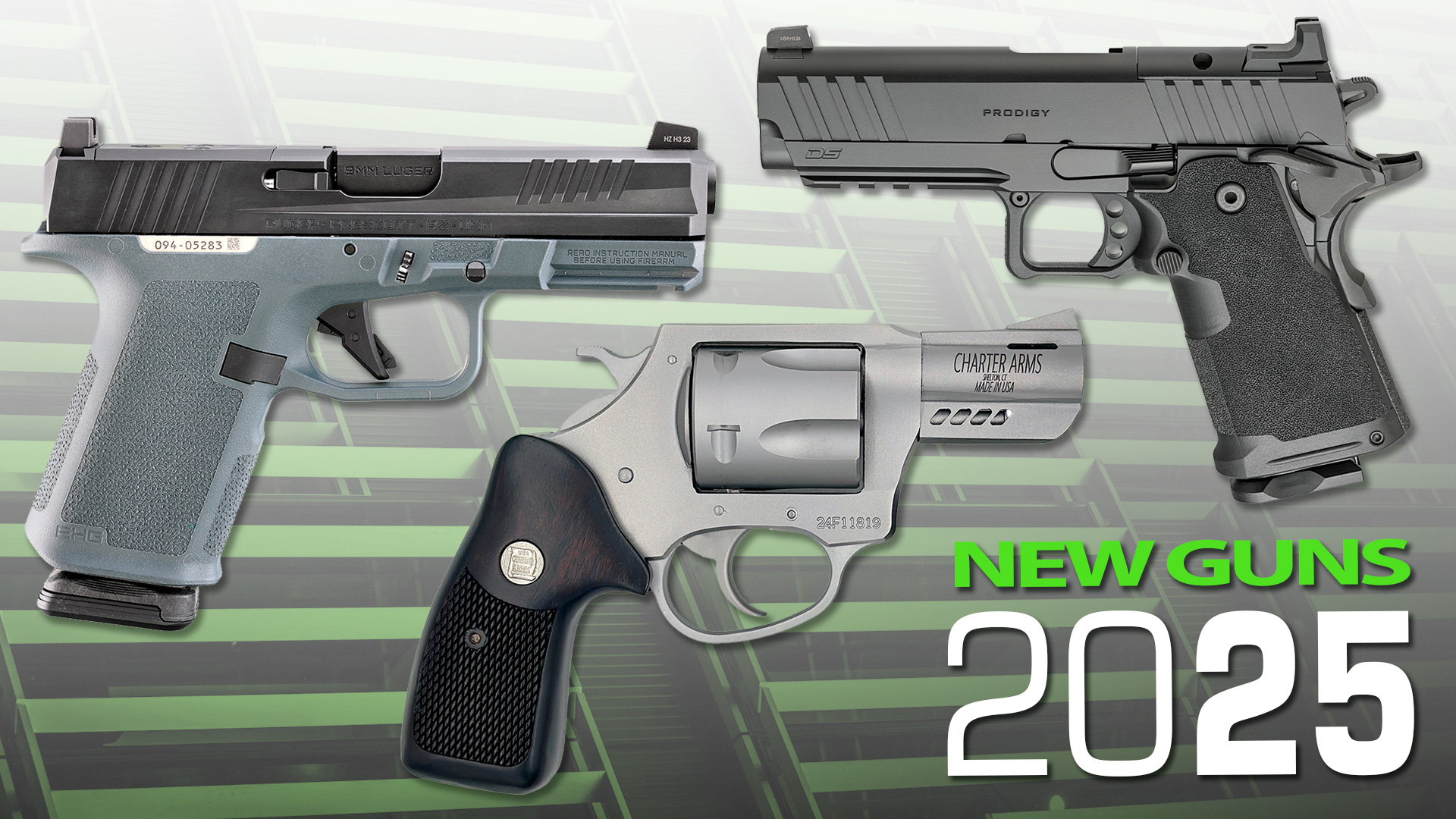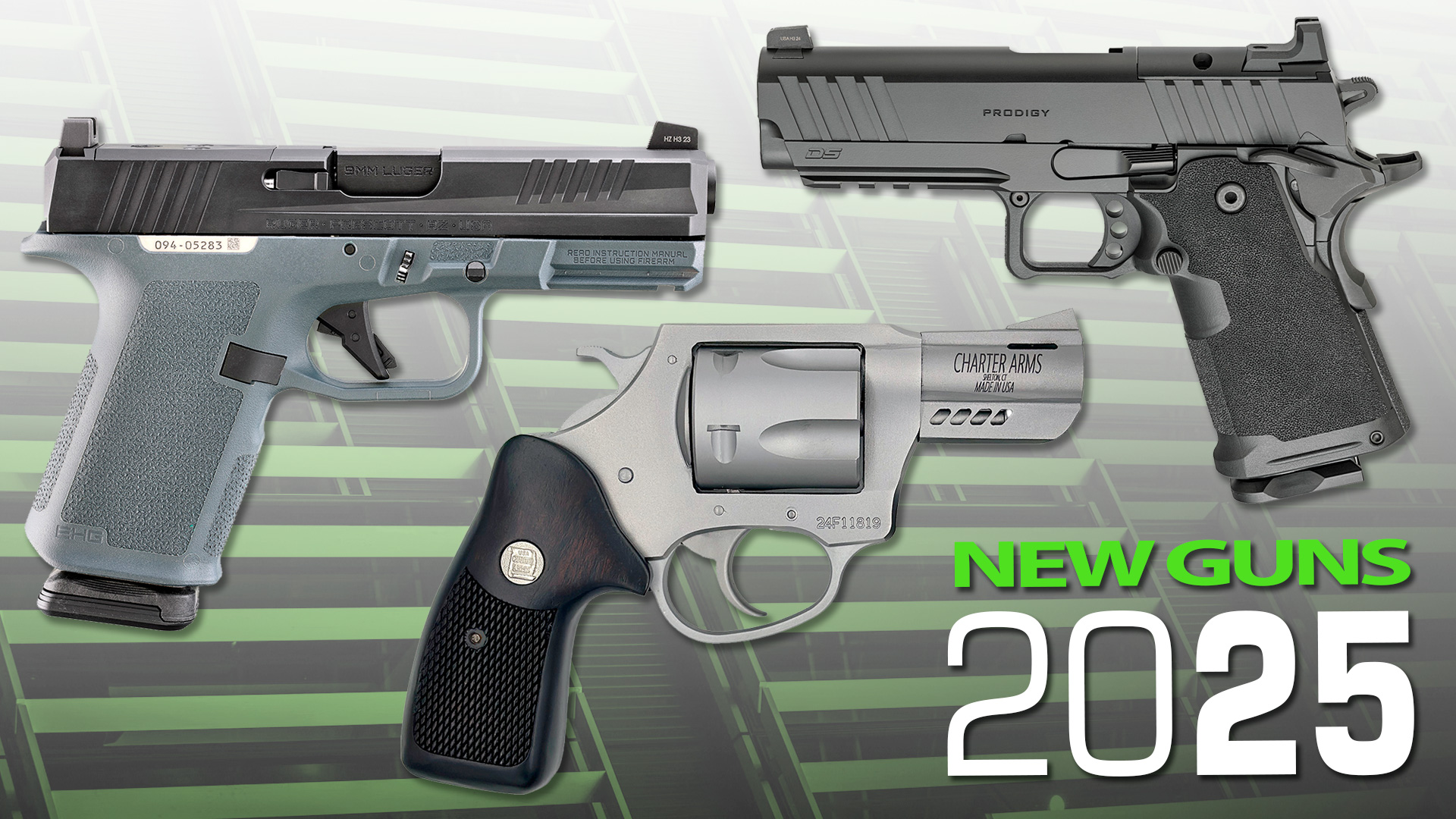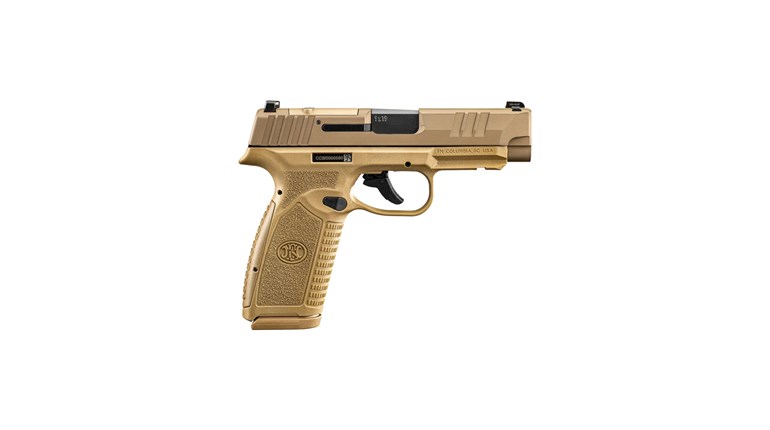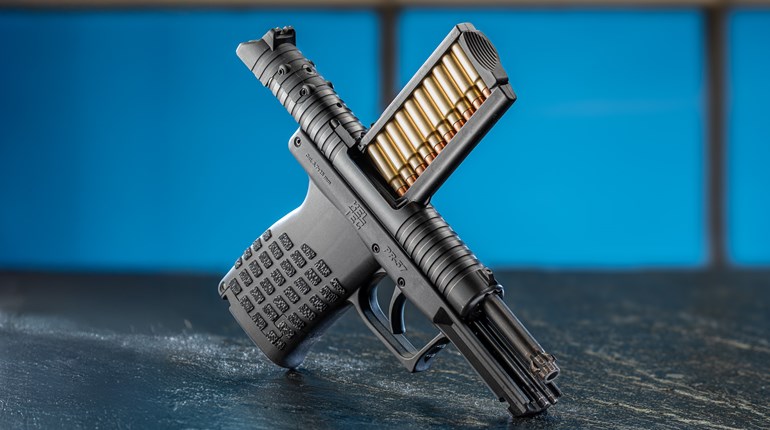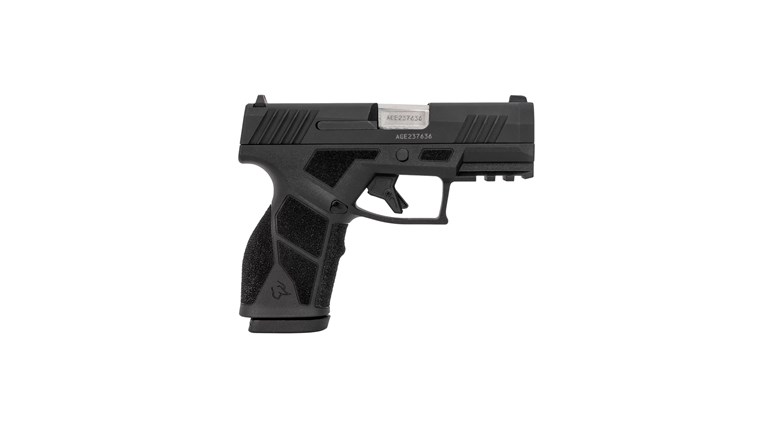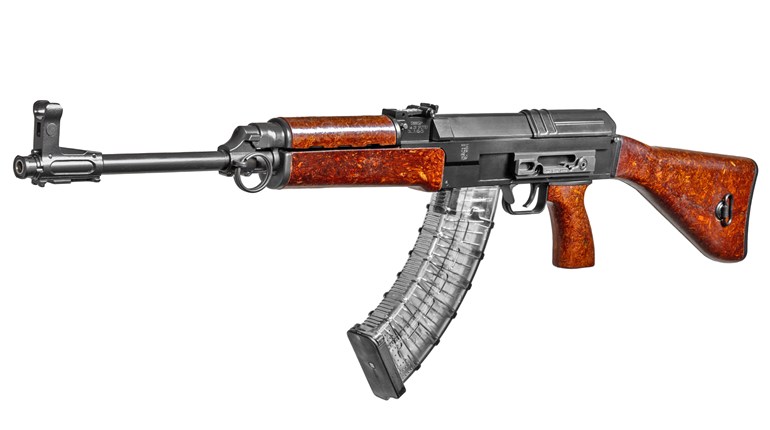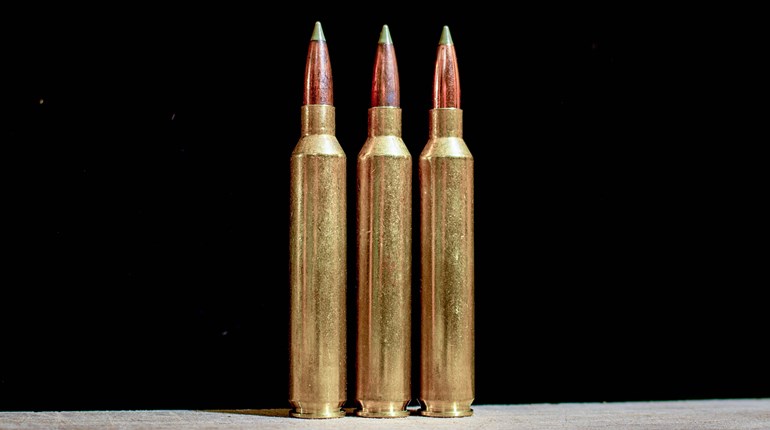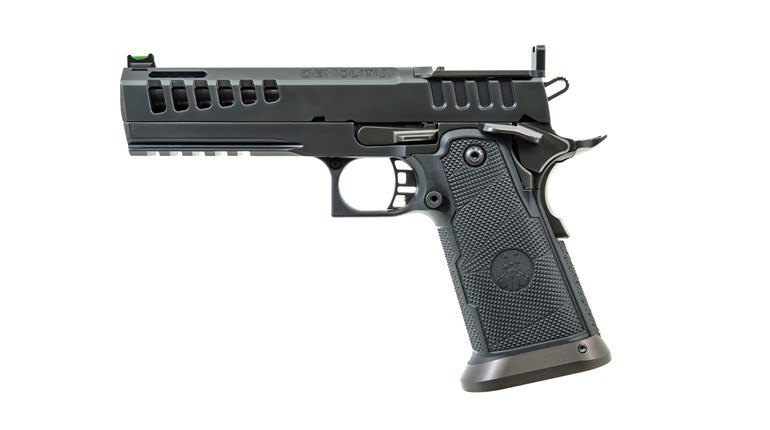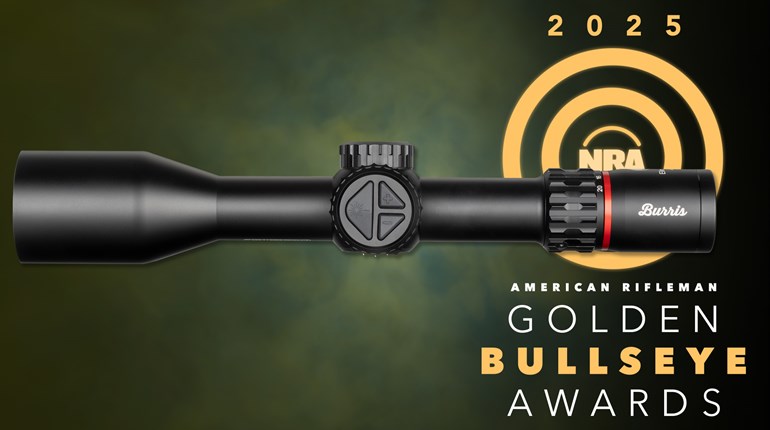
In my recent review of the FN 509C MRD, I mentioned that at the product-launch event, FN’s marketing department made a point of mentioning that it wanted to renew its commitment to the commercial market in the U.S. There was even a fairly substantial media presentation, showing normal folks in regular, civilian clothing carrying or presenting FN pistols in mock self-defense situations.
If one has covered the firearm industry here for any length of time, that’s an easy pitch about which to be cynical. Every so often, one or another small-arms manufacturer whose major bread and butter is military and LE contracts will drop a press release announcing a “renewed commitment to the American commercial market” or words to that effect, but rarely does it seem to change much.
Fabrique Nationale’s bread, both here and at the parent company in Belgium, is definitely buttered by military and LE sales. When you consider just the global sales of the general-purpose machine guns for which the company is most famous, its commercial sales probably amount to a rounding error on the balance sheet.
So, when looking at the 509C, it was easy enough to think “Yeah, that’d be easy to CCW…but it’s not like it’s a new gun; FN just chopped down its existing duty pistol. The company will probably sell plenty to departments for detectives or issued backup guns.”
Now here comes the subject of this article, the new, slim, subcompact FN 503, and I have to apologize to FN for my lack of faith. Because the FN 503 is a pistol that is obviously a clean-sheet-of-paper design, domestically produced right here in South Carolina, and aimed right at the U.S. concealed-carry market.

Like several other FN pistols these days, it is packaged inside a zippered, nylon case that looks vaguely like a tactical day planner notebook. This arrives inside a cardboard outer box that contains a lock and a couple other items (more about this later). Unzipping the case reveals the single-stack subcompact inside. Its slightly chunky-looking profile belies its actual tiny dimensions. In fact, by virtue of its slightly shorter barrel (3.1 inches), it’s actually a good third of an inch shorter in overall length than the already diminutive Glock G43.
The slide, which is slightly beveled and features a raised rib running along the top between the sights, has six wide, shallow cocking serrations at the rear on each side. Other than the logo, model number and chambering, it’s featureless except for the cutout for the extractor.
While the extractor protrudes slightly when there’s a round under its claw—offering a visual and tactile indication that the pistol is hot—there’s also a semi-circular “witness hole” in the chamber hood, allowing one to confirm the glint of a cartridge in the chamber as well.

The polymer frame is thin, measuring barely over an inch across at its widest spot, where a small, raised area acts as a sort of “fairing” for the leading edge of the slide-stop lever. Most of the rest of the frame is only about .9 inch wide. The frame is slightly wasp-waisted, being noticeably thinner at the top of the grip where the thumb and trigger finger ride.
The slide stop itself is extremely low profile and shaped with an eye toward preventing it from snagging on anything or abrading the shooter’s hands. A raised projection shaped like a tiny, stepped Aztec pyramid provides traction for the thumb from above or below.
The magazine release is located in the usual spot behind the trigger guard on the left-hand side. It’s semi-recessed in a cleverly shaped surround that allows the thumb to activate it with ease, but protects it from inadvertent actuation, even if the pistol is laid flat on its left side. Empty magazines eject with enough vigor that I was tempted to chronograph them.
Interestingly, the magazine release clearly seems to be reversible, with the same protective surround echoed on both sides of the grip and symmetrical holes. FN even includes directions for removing and reinstalling the magazine release in the owner’s manual, and in the shipping box there is a little plastic bag with what is clearly a mirror-image, left-handed release button. Yet, nowhere in the manual or any ad copy I could find online at the time of this writing is its reversibility mentioned. Weird.
The magazines themselves are conventional sheet-steel, single-stack magazines and the pistol comes with two of them; a (mostly) flush-fit six-rounder and an eight-round, extended magazine that features an adaptor collar textured to match the rest of
the grip for extra purchase.
In the original 509 review, I joked about the number of different textures on the grip, which would be four if one counted the untextured areas as a texture. With the 503, FN dropped the coarse, pyramidal checkering on the sides of the grip and instead took the rough, skateboard-tape-like texturing that is in the areas where your thumbs rest on the 509 and continued it all the way down both sides of the grip. Probably a good idea for a pistol that may be worn against bare skin or a thin undershirt.

Taking the pistol down is something of a chore for people without a lot of grip strength. After safely removing the magazine and clearing the chamber, the slide must be held partially retracted so that the end of the slide stop aligns with a tiny takedown notch in the slide.
If the slide stop won’t wiggle free easily (and it won’t when the gun is new and snug) there’s a small hole on the opposite side of the frame where a punch can be inserted to apply some force to the axle of the slide stop.
Once the gun is apart, the reason for the tough disassembly is apparent; the recoil assembly is an extremely beefy-looking, double-spring affair. Fortunately, it’s on a captive guide rod, so reassembly isn’t near the pain it would be otherwise.
As is getting to be common these days, the FN 503 features a removable, steel chassis that holds the lockwork, forms the frame rails and comprises the actual serialized part. The owner’s manual gives detailed instructions on how to remove and replace this unit in the plastic frame, so one can make the assumption that if the pistol is a success in the market, additional grip modules in varying sizes and colors will be coming along to exploit its newfound popularity.
So, there’s all the physical details of the pistol; let’s get to the fun and kinetic part. I’d say the initial range trip was one of my best “getting to know you” sessions I’ve had with a pistol like this in ages. Slim, subcompact 9 mm semi-automatics can take a lot of getting used to if you want to get best results from them, but I was barely two boxes of ammunition into my time with the 503 before I’d gotten the hang of it.
 The factory three-dot sights are plenty usable, at least in decent light, and if you want to replace them, they use the same dovetails as the FN 509 (*cough*SIG*cough*). Normally a tiny pistol with a skinny grip that weighs only a pound and a half or so can be a handful with 9 mm defensive loads, but a combination of the aforementioned beefy recoil-spring assembly, as well as a grip that is extra deep measured from front to rear, makes controlling recoil easier than expected.
The factory three-dot sights are plenty usable, at least in decent light, and if you want to replace them, they use the same dovetails as the FN 509 (*cough*SIG*cough*). Normally a tiny pistol with a skinny grip that weighs only a pound and a half or so can be a handful with 9 mm defensive loads, but a combination of the aforementioned beefy recoil-spring assembly, as well as a grip that is extra deep measured from front to rear, makes controlling recoil easier than expected.
FN hypes this trigger in the ad copy as being a class leader on subcompact nines. While that’s subjective, it’s not a lie to say that the trigger on the test gun had a consistent, rolling break at a relatively light 5 pounds on my RCBS trigger-pull scale. It’s fairly narrow, made of steel and has a smooth, round face. It works equally well with the pad of the trigger finger or with the distal crease as though it were a DA revolver trigger.
The end result of all this is that with about 100 rounds under my belt to get the hang of the sights and trigger, as well as the most efficient way to grip the pistol, I was having no problems ringing the 8-inch steel plates in the pistol bays at my club from 20 yards as fast as I could reacquire a sight picture. This is a very shootable little pistol.

Build quality is typically good, as one expects from FN. Except for the oddity of the not-quite-flush magazine floorplate, the ergonomics are extremely well thought out. For accuracy and ease of shooting at speed, it’s as good or better than any micro single-stack 9 mm I’ve tried.
Within its limitations, this is an extremely solid offering from FN and is hopefully a harbinger of more to come. Also, finally those who normally carry larger FN pistols like the 509 or FNS can shop for a deep-concealment or backup gun without having to look in the showcases of other manufacturers. I feel bad for having been a doubter. Good job, FN.



